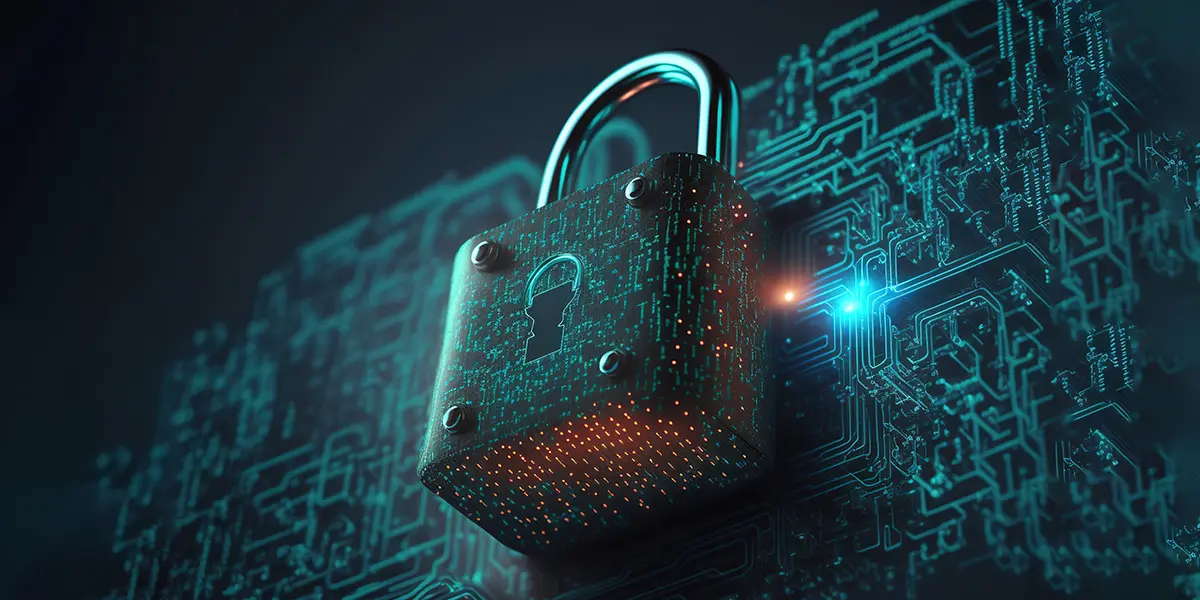
September 11, 2023
Category
Business
In today's digitally connected world, cybersecurity is a paramount concern for businesses of all sizes. Small businesses, in particular, are vulnerable to cyber threats due to their limited resources and often inadequate security measures. In this blog post, we will explore the importance of cybersecurity for small businesses and provide practical tips to enhance their online security.
Small businesses play a vital role in the global economy. However, their modest size often leads to the misconception that they are immune to cyber threats. In reality, they are attractive targets for cybercriminals, making cybersecurity a pressing concern.
Understanding cybersecurity
Cybersecurity encompasses a range of practices and technologies designed to protect digital systems, networks, and data from unauthorised access, damage, or theft. It is an ongoing process that demands constant attention. It is a multifaceted field that entails a comprehensive understanding of digital security.
The threat landscape
Types of cyber threats
Cyber threats come in various forms, including malware, phishing attacks, ransomware, and more. Each poses unique risks to small businesses.
Common targets
Small businesses often underestimate the value of their data, but cybercriminals don't. They frequently target customer data, financial information, and intellectual property.
Why small businesses are vulnerable
Small businesses face unique cybersecurity challenges due to their limited resources and often insufficient security measures. These vulnerabilities include:
- Limited budgets: Small businesses may allocate a smaller portion of their budget to cybersecurity, leaving them less prepared to invest in advanced security measures.
- Lack of IT expertise: Many small businesses in the UK may lack dedicated IT staff with cybersecurity expertise. This gap can lead to inadequate protection against threats.
- Dependency on third-party services: Small businesses often rely on third-party services and software, which may introduce security risks if not adequately vetted.
- Scalability challenges: As small businesses grow, they may overlook the need to scale up their cybersecurity measures, leaving them exposed to new risks.
The cost of a cybersecurity breach
The cost of a cybersecurity breach for businesses goes beyond immediate financial losses. It encompasses various aspects, including financial losses, reputation damage, potential legal consequences and operational disruption. Not only that, but a significant loss of customers who no longer trust your business can have a lasting impact on revenue and growth. By understanding these nuances of cybersecurity, small businesses can better appreciate the importance of robust security measures and take proactive steps to protect their digital assets and reputation.
Steps to improve cybersecurity
- Employee training: Educating employees about cybersecurity risks and best practices is crucial. Human error is a leading cause of security breaches.
- Strong password policies: Enforce strong password policies and encourage regular password changes.
- Regular software updates: Outdated software is a prime target for cyberattacks. Ensure all software is up-to-date with the latest security patches.
- Firewall and antivirus software: Invest in robust firewall and antivirus solutions to safeguard your network.
- Data encryption:
Encrypt sensitive data to prevent unauthorised access. - Backup and recovery plans: Regularly back up data and develop a comprehensive recovery plan.
- Incident response plan: Have a well-defined incident response plan in place to mitigate the impact of a breach.
Choosing a cybersecurity provider
Selecting the right cybersecurity provider is a critical decision that can significantly impact your business's security posture. In the United Kingdom, there are several reputable cybersecurity firms that offer a range of services tailored to businesses of all sizes. When making your choice, consider the following factors:
- Expertise: Look for a provider with a deep understanding of the specific cyber threats facing UK businesses. They should be well-versed in local regulations and compliance requirements.
- Track record: Research the provider's track record. Have they successfully protected businesses similar to yours? Check for client testimonials and case studies.
- Customisation: Ensure that the provider can tailor their services to your business's unique needs. One-size-fits-all solutions may not be suitable for your specific industry or size.
- 24/7 monitoring: Opt for a provider that offers round-the-clock monitoring of your systems and networks. Cyber threats don't adhere to a 9-to-5 schedule.
- Incident response: Inquire about their incident response capabilities. A swift and effective response to a cyberattack can mitigate the damage.
Cybersecurity best practices
Implementing cybersecurity best practices is essential for safeguarding your business. In the UK, these practices align with international standards and local regulations. Some key best practices include:
- Multi-factor authentication (MFA): Encourage or mandate the use of MFA for accessing sensitive systems. This extra layer of security helps prevent unauthorised access.
- Network segmentation: Divide your network into segments to limit lateral movement for attackers. This strategy enhances control and containment in case of a breach.
- Regular auditing: Conduct regular security audits and assessments to identify vulnerabilities and weaknesses in your systems.
- Patch management: Establish a robust patch management process to keep all software and systems up-to-date with the latest security patches.
Building a culture of security
Building a culture of security within your business is an essential and ongoing effort. It involves fostering an environment where cybersecurity becomes a shared responsibility among all employees. This culture not only enhances your business's resilience to cyber threats but also ensures that every team member plays an active role in safeguarding digital assets.
To establish this culture effectively, start by providing comprehensive cybersecurity training and awareness programs to all employees. It's crucial to educate them about the latest threats, best practices, and the importance of their role in protecting the company's digital infrastructure. Emphasise that cybersecurity is not solely the responsibility of the IT department but a collective effort.
Leadership support is paramount in building a culture of security. Ensure that top management sets a positive example by prioritising cybersecurity and adhering to best practices themselves. This will not only strengthens your cybersecurity measures but also builds trust with customers and partners who value the protection of their data. By making cybersecurity a part of your organisational DNA, you can better defend against the ever-evolving landscape of cyber threats.
Monitoring and continuous improvement
- Cyber threats are continually evolving, making continuous monitoring and improvement crucial for businesses in the UK. Here's how to approach this:
- Threat Intelligence: Stay updated on the latest threat intelligence specific to the UK. Subscribe to threat feeds and reports from reputable sources.
- Incident Drills: Conduct regular incident response drills to test your team's readiness to handle cyber incidents effectively.
- Feedback Loop: Establish a feedback loop where insights from incidents or near misses are used to improve security measures continually.
Legal and regulatory compliance
In the United Kingdom, compliance with data protection and cybersecurity regulations is not just good practice; it's a legal requirement. Key regulations to be aware of include:
- General Data Protection Regulation (GDPR): Ensure that your business complies with GDPR requirements regarding the processing and protection of personal data.
- Data Protection Act 2018: Complementing GDPR, this UK-specific law provides further guidance on data protection.
- Cyber Essentials: Consider obtaining the Cyber Essentials certification, which is a UK government-backed scheme that demonstrates your commitment to cybersecurity best practices.
- Industry-Specific Regulations: Depending on your industry, there may be additional regulations to adhere to, such as those for financial services or healthcare.
By delving deeper into these aspects of cybersecurity, your small business in the United Kingdom can make well-informed decisions and better protect itself from the ever-present cyber threats in today's digital landscape.
Conclusion
In today's digital age, cybersecurity is not an option but a necessity for small businesses. By prioritising security and implementing best practices, small businesses can protect their assets and reputation.
FAQs
Q: What is cybersecurity?
A: Cybersecurity refers to the practices and technologies used to protect digital systems, networks, and data from cyber threats.
Q: Why are small businesses vulnerable to cyberattacks?
A: Small businesses often have limited resources and may lack dedicated IT personnel, making them attractive targets for cybercriminals.
Q: What are some common types of cyber threats?
A: Common cyber threats include malware, phishing attacks, ransomware, and data breaches.
Q: How can I improve cybersecurity in my small business?
A: Start by educating employees, enforcing strong password policies, and keeping software up-to-date. Consider investing in firewall and antivirus software and developing a data backup and recovery plan.
Q: Why is employee training essential for cybersecurity?
A: Employee training is crucial because human error is a leading cause of security breaches. Educated employees are better equipped to recognise and respond to threats.
By following these guidelines and adopting a proactive approach to cybersecurity, small businesses can significantly reduce the risks associated with cyber threats. Remember that cybersecurity is an ongoing process, and staying vigilant is the key to safeguarding your business.
Share this Post
Access Our
Business Starter Pack






















